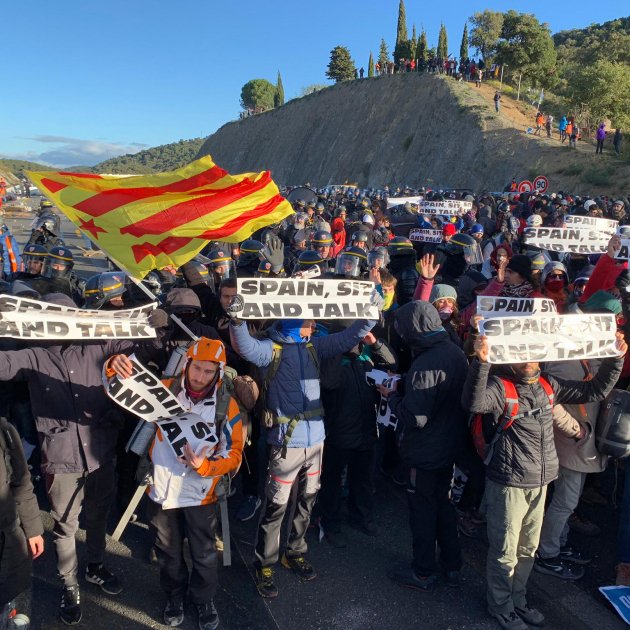The criteria of the French justice system have shown up the decisions taken by its Spanish counterpart. Last week's major motorway blocking protests on the French-Spanish border meant that arrests were made by police in both countries. But while the agents of the Spanish legal system are investigating the roadblocks of the Democratic Tsunami protest platform for terrorism, the French authorities - which are processing the 18 people arrested at El Pertús, just across the border in Northern Catalonia - are only following up a possible offence of "obstruction of a public road."
As public television channel France3 reported on Saturday in a Catalan-language news programme, this is the offence which French justice will pursue against some of the protesters arrested early last week, who were all subsequently released. Three of these protesters are due to appear before a judge on Monday, Tuesday and Wednesday at the High Court in Perpinyà.
The Northern Catalonia Lawyers Association has offered to provide legal aid to those arrested at the El Pertús protest for free, and has appealed for volunteer lawyers who are Catalan speakers. "We want the language rights of these young people to be respected," said lawyer Mateu Pons Serradell on France3.
"Obstruction of the motorway at El Pertús. The Eastern Pyrenees lawyers association is offering volunteers to defend the protesters who were arrested on Tuesday by the French Gendarmerie," says the television channel's tweet.
This is the moment when the French riot police removed the protesters in El Pertús, a few metres north of the border.
Meanwhile, on the other side of the frontier, Spain's National Audience court is investigating the Democratic Tsunami protest platform as an entity for alleged terrorism. This inquiry was initiated four days after the platform called its first protest, blocking accesses to Barcelona-El Prat Airport on October 14th.
National Audience judge Manuel García-Castellón ordered the closure of the group's websites and social media profiles, and is conducting the inquiry as a new line in the terrorism investigation already initiated in September against a different pro-independence group: the nine members of a CDR (Committee for the Defence of the Republic) group who are alleged to have been preparing to use explosives and planning sabotage operations, seven of whom have been held in provisional prison ever since.
